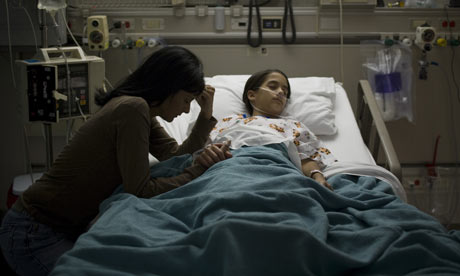Dr. Ian Mitchell says knowledge of CBD and THC is essential in properly
prescribing cannabis to patients suffering from pain linked to cancer,
AIDS, arthritis, and multiple sclerosis. He points out that some
people’s stomachs can’t tolerate traditional anti-inflammatory
medications, which can cause gastrointestinal bleeding.
“I have a few little old ladies in my practice,” he reveals. “They
have a cookie every night and say, ‘I don’t take my Percocet anymore.’ I
would consider that a success because that’s a far less harmful way to
treat their pain.”
 Dr. Ian Mitchell (pictured) says that in an ideal world, physicians would learn
about the medicinal properties of cannabis in medical school. Doctors
would be trained about different extracts from marijuana plants,
including cannabidiol, aka CBD, and tetrahydrocannabinol, aka THC.
Dr. Ian Mitchell (pictured) says that in an ideal world, physicians would learn
about the medicinal properties of cannabis in medical school. Doctors
would be trained about different extracts from marijuana plants,
including cannabidiol, aka CBD, and tetrahydrocannabinol, aka THC.
Mitchell says that CBD is normally about one to two percent of a
marijuana plant, whereas the psychoactive agent THC is over 10 percent
and getting closer to 20 percent.
Drug prohibition has led to plants being grown with a higher THC
percentage because that’s what buyers prefer. The downside, he says, is
that plants with higher THC levels often have drastically lower levels
of CBD.
“You don’t have the antipsychotic and anti-anxiety properties,”
Mitchell explains. “So all of the sudden, you’re smoking this very
intense stuff that in the U.K. they call skunk. That probably does make
people a bit psychotic and probably does make people very anxious, but
this is because of prohibition.
“That’s part of the argument for proper regulations—so that you could
choose stuff to have cannabidiol,” he adds. “I consider that essential
in a medical-cannabis situation. I want to know what my patients are
getting as far as the THC and CBD content.”
Research planned into PTSD and cannabis
He's part of a team awaiting approval from UBC and Health Canada to
launch a study into the effect of different preparations of cannabis on
posttraumatic stress disorder. He points out that PTSD is taking a
tremendous toll on military families in particular.
"This is a huge deal in America," Mitchell says. "Right now, there are 22 veterans a day who commit suicide."
Paxil is the only medication that's approved for treating PTSD, but
according to Mitchell, it doesn't work for most people. He says that
there is "very good preliminary evidence that cannabis can be
effective".
"Some of the synthetic cannabinoids like nabilone have been shown
effective for nightmares associated with PTSD," Mitchell states.
He reveals that in the pending research study—the first trial of its
kind—one group of research subjects would receive cannabis with CBD but
no THC. Another group would consume cannabis with CBD and THC. Another
would get cannabis with THC but no CBD and others would receive a
placebo.
continue reading: http://www.straight.com/news/413971/kamloops-physician-ian-mitchell-explains-how-cannabis-relieves-pain-and-reduces-anxiety








